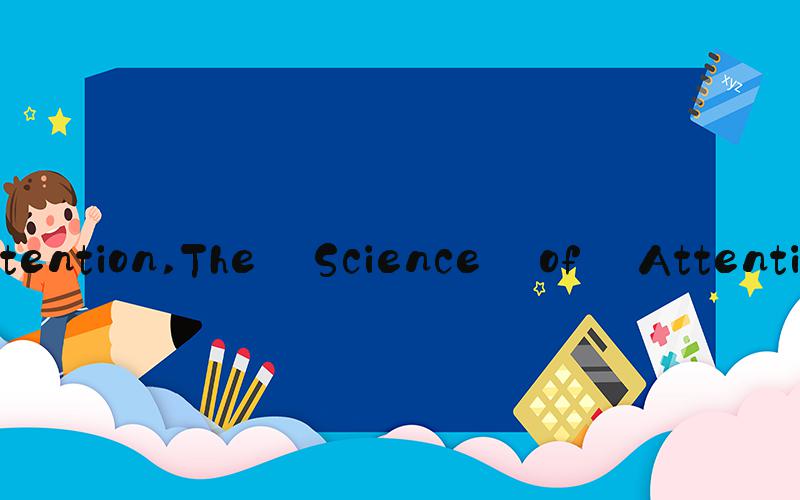 Attention: What it is and Why it Matters
Attention: What it is and Why it MattersIn today's fast-paced and information-saturated world, attention has become a scarce and valuable commodity. We live in an age of distraction, where we are constantly bombarded by notifications, emails, and messages that compete for our time and focus. As a result, our ability to concentrate and sustain our attention has become increasingly challenged, causing negative impacts on our productivity, creativity, and well-being.
The Science of AttentionAttention is a cognitive process that involves selecting and concentrating on specific stimuli while filtering out others. It is essential for our perception, learning, and memory, and closely linked to our executive functions, such as planning, decision-making, and self-control. However, attention is not a fixed trait; it can vary depending on factors such as our environment, mood, and motivation.
Recent advances in neuroscience have shed light on how attention works in the brain. Studies have shown that attention involves a complex interplay between different brain regions, such as the prefrontal cortex, parietal cortex, and thalamus. Furthermore, attention can take different forms, such as selective attention, where we focus on one stimulus while ignoring others, or sustained attention, where we maintain focus over a prolonged period of time.
The Cost of DistractionWhile attention is crucial for our cognitive functioning, the modern lifestyle poses many challenges to maintaining focused attention. The proliferation of digital devices and online platforms has created a constant stream of distractions that can hijack our attention and impair our performance. Studies have shown that excessive use of technology can lead to attention deficits, stress, and reduced well-being.
The cost of distraction is particularly evident in the workplace. The average office worker spends around 2.5 hours per day on email alone, with constant interruptions and multitasking adding to the cognitive load. This can lead to decreased productivity, increased errors, and burnout. Moreover, the constant barrage of information can diminish our creativity and ability to think deeply about complex problems.
The Power of AttentionDespite the challenges of maintaining attention in the modern world, there are many benefits to cultivating our attention skills. By improving our focus and concentration, we can enhance our performance, creativity, and well-being. Furthermore, attention is a trainable skill that can be developed through various practices, such as mindfulness meditation, cognitive training, and lifestyle changes.
Research has demonstrated that mindfulness meditation, a practice that involves paying attention to the present moment without judgment, can lead to improvements in attention, working memory, and stress management. Similarly, cognitive training programs that target attention and working memory have been shown to enhance cognitive performance and academic achievement.
ConclusionAttention is a fundamental cognitive process that underpins many aspects of our lives. However, the modern lifestyle poses many challenges to maintaining focused attention, leading to negative impacts on productivity, creativity, and well-being. Fortunately, attention is a malleable skill that can be improved through various practices and interventions. By developing our attention skills, we can reap the benefits of enhanced cognitive performance, lower stress levels, and a more fulfilling life.
